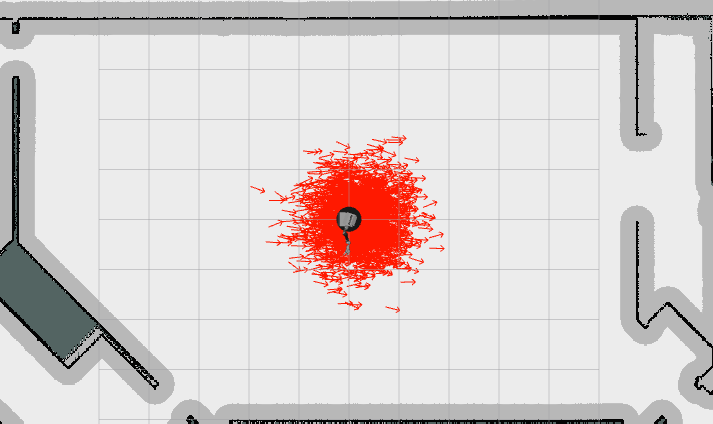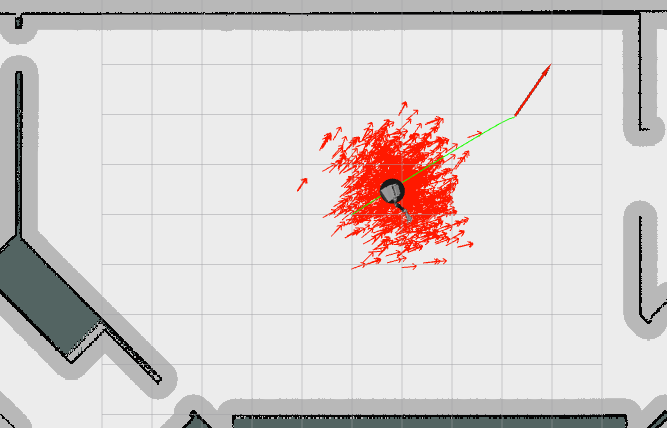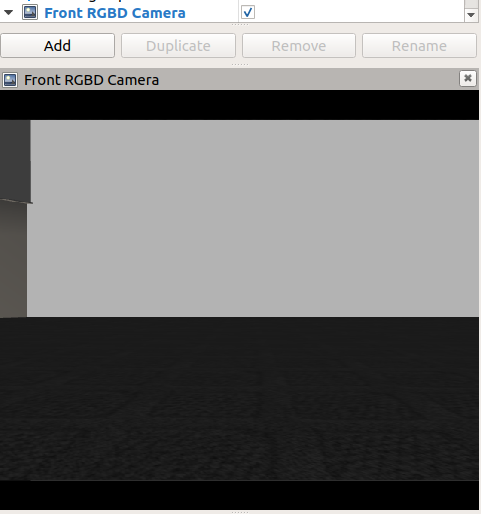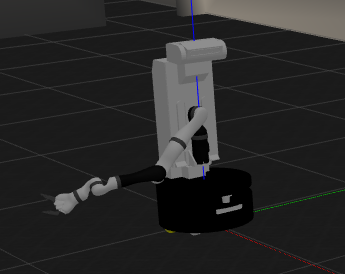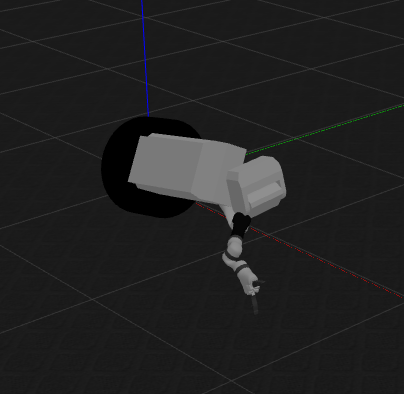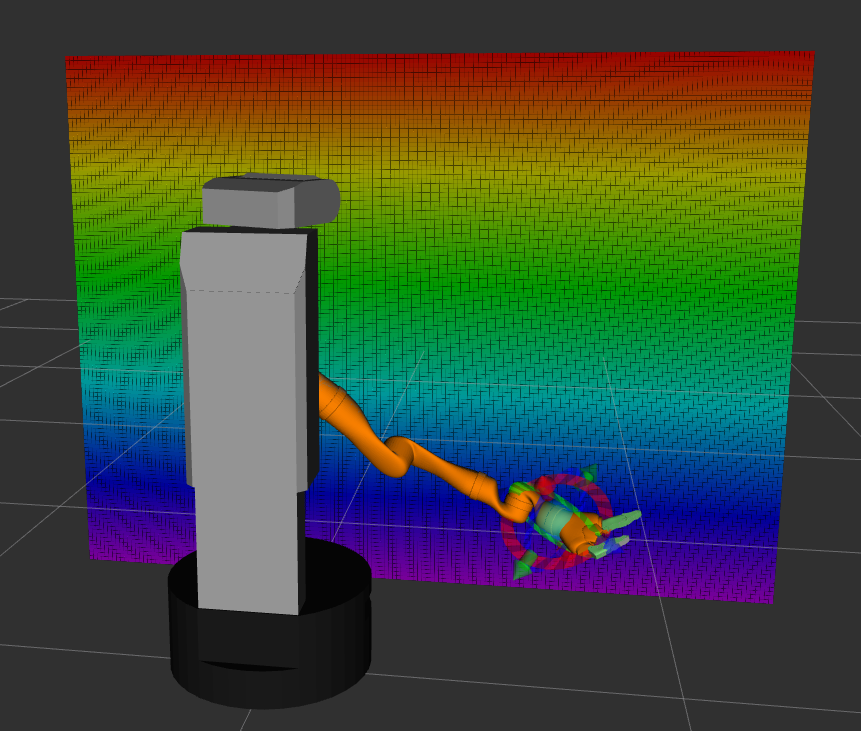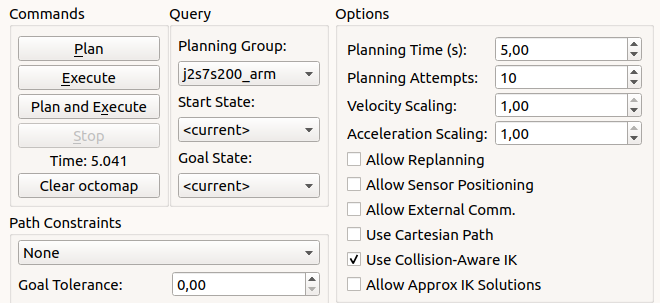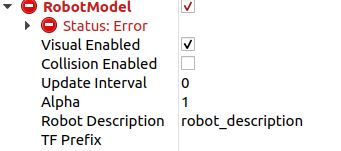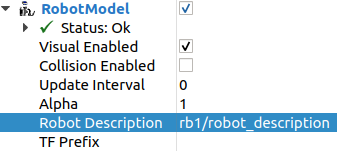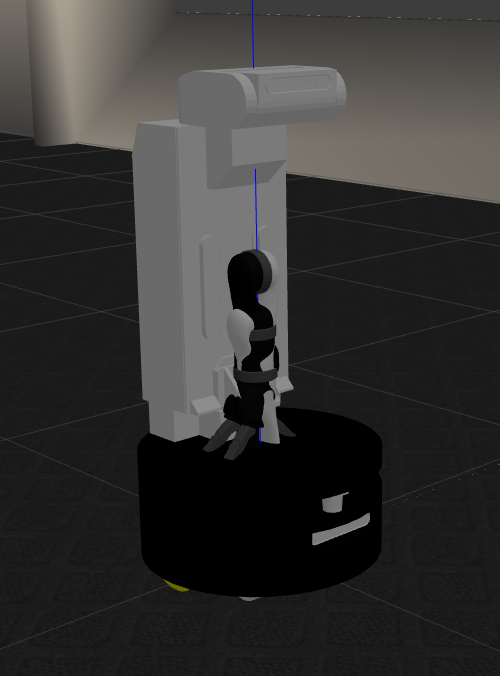Table of Contents
Robotnik RB-1
Main page: robotnik rb-1
Simulation
This document will cover how to install, launch and test the rb1 simulation. It is based on ROS and uses rviz and gazebo.
Installation
ROS
If it hasn't been done already, the first step is to install ROS. The installation process and required ROS version vary depending on the OS. The simulation has been tested on ROS melodic and kinetic.
ROS Melodic (Ubuntu 18.04): http://wiki.ros.org/melodic/Installation
ROS Kinetic (Ubuntu 16.04): http://wiki.ros.org/kinetic/Installation
If this is your first time using ROS, it is recommended to follow the tutorials at: http://wiki.ros.org/ROS/Tutorials
The next step is to create a catkin workspace to put all the simulation packages. Details are provided here: http://wiki.ros.org/ROS/Tutorials/InstallingandConfiguringROSEnvironment
RB1 packages
Once ROS has been installed and a catkin workspace has been prepared, the simulation packages can be installed.
The commands to install all the packages are as followed:
cd /path/to/catkin_workspace/ git clone https://github.com/RobotnikAutomation/rb1_sim.git git clone https://github.com/RobotnikAutomation/rb1_common.git git clone -b kinetic-devel https://github.com/RobotnikAutomation/kinova-ros.git
Installs the packages required for the simulation. At the moment only the kinetic-devel branch of kinova-ros works with the simulation. If another version is installed, the arm will be stuck into the rb1 and enable to move.
git clone -b ${ROS_DISTRO}-devel https://github.com/RobotnikAutomation/rb1_base_sim.git
git clone -b ${ROS_DISTRO}-devel https://github.com/RobotnikAutomation/rb1_base_common.git
git clone -b ${ROS_DISTRO}-devel https://github.com/RobotnikAutomation/robotnik_msgs.git
git clone -b ${ROS_DISTRO}-devel https://github.com/RobotnikAutomation/robotnik_sensors.git
git clone https://github.com/RobotnikAutomation/robotnik_base_hw_sim.git
git clone https://github.com/RobotnikAutomation/robot_localization_utils.git
git clone https://github.com/rst-tu-dortmund/costmap_prohibition_layer.git
Install dependencies. ${ROS_DISTRO} is an environment variable corresponding to the ROS distribution installed.
sudo apt-get install ros-${ROS_DISTRO}-ros-control ros-${ROS_DISTRO}-joint-state-controller ros-${ROS_DISTRO}-effort-controllers ros-${ROS_DISTRO}-position-controllers ros-${ROS_DISTRO}-velocity-controllers ros-${ROS_DISTRO}-ros-controllers ros-${ROS_DISTRO}-gazebo-ros ros-${ROS_DISTRO}-gazebo-ros-control
rosdep install --from-paths src --ignore-src -r -y
Install or update additional dependencies and packages used for simulations (gazebo…)
git clone TODO
Package containing .launchfile for the simulation and fixing a few bugs from the rb1 packages.
A script has been prepared for the complete installation of all the required packages on ROS kinetic and melodic.
Launching
Several .launchfiles were prepared to correct a few bugs with the simulation and launch the simulations.
Two main launchfiles called rb1_melodic_complete.launch and rb1_kinetic_complete.launch were prepared. They can be used to start a simulation with: odometry and navigation using rviz; the robot in a 3D environment using gazebo; arm movement using moveit. Please note that this may take a lot of resources, especially on a laptop.
cd /path/to/catkin_workspace/
source devel/setup.bash
roslaunch rb1_fix rb1_${ROS_DISTRO}_complete.launch
The differences between the kinetic and melodic launchfiles are very slim. The only difference is that a dependency has a different name on kinetic and melodic.
Optional arguments:
TODO
Testing
Once simulation is launched, three windows should open.
RVIZ
The first window contains a 2D representation of the robot in its environment. It's also possible to use it to collect data from the robot's sensors.
By clicking on “2D Nav Goal”, it is possible to select a destination for the robot.
Other information can be retrieved such as the images taken by the RGBD camera. To do so, click on the left side of rviz and select “Front RGBD camera”
Gazebo
Gazebo contains a 3D reprentation of the robot in its environment. If commands are sent to the robot, those changes will be reflected in the gazebo simulation.
However, Rviz and gazebo may not be perfectly synchronized. Unlike Rviz, Gazebo simulates the physics of the robot. As such, navigation with Gazebo may be significantly slower depending on the position of the arm.
Moreover, the robot may fall down during the simulation. In order to fix it, the solution is to go to Edit > Reset Model poses.
Moveit
Moveit is a platform which enables motion planning and the manipulation of objects.
At launch, the robot will be loaded as well as a cursor. This cursor is used to select a destination for the arm.
Once a destination has been set, the movement can be planned and executed using the menu on the bottom-left. To do so, select “Start State” and “Goal State” as current, press “Plan”, followed by “Execute”.
If the arm and/or the robot appear in red, it means the arm is in collision with the base. When this happens, moving the arm becomes impossible. To solve this issue, a possible approach is to go to gazebo and Edit > Reset Model poses to reset the position of the arm. A similar issue may appear if a joint is in an impossible position (I.e: above its angle/position limit)
If the arm is in a difficult position, a possible workaround is to select “Start state” as current, “Goal state” as random valid and allows Cartesian path.
Known issues
The robot doesn't appear in Rviz
This appears if the “prefix” argument of rb1_fix/rb1_xx_complete.launch is changed or when using the launchfile from rb1_sim.
In that case, it is required to adjust the topics used by rviz. Either by changing the prefix or adding it using the prefix_name/ pattern.
For instance, if the prefix is “rb1”:
If done correctly, the warnings or errors for each section should disappear.
Gazebo: arm is stuck in a vertical position
This is issue is caused by incompabilities issues between the rb1_sim / rb1_common packages with kinova-ros. To solve this problem, it is currently mandatory to install the kinetic-devel version of kinova-ros.
